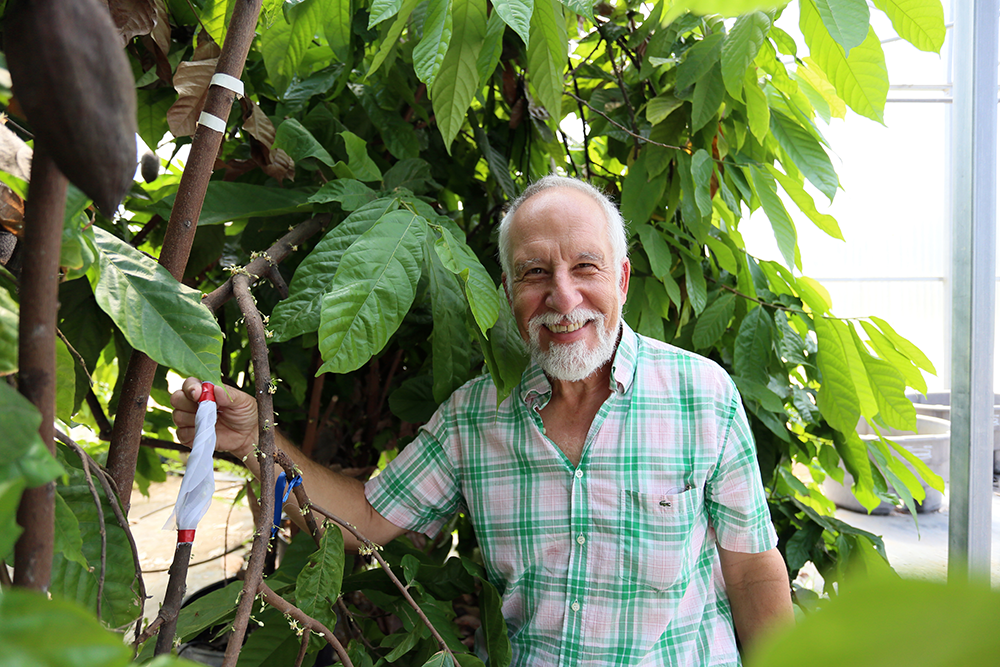What to Do with a Biology Degree
What could you do with your master’s or PhD in biology? Finding the answer to that question depends on your ambitions and passions, but earning a graduate degree in biology can help you reach just about any professional goal you set for yourself.
For the recipient of the master’s in biology jobs are available in teaching and research, or you can use it as a stepping-stone for entry to medical school, dental school, or other professional schools. For the PhD in biology jobs are available in higher education, research and industry and often provide more flexibility, self-direction, supervisory responsibilities, stability, and pay. Let us prepare you for the job that’s right for you.
You could teach
You need an advanced degree to teach others about your passion, whether that’s anatomy and physiology, evolution, coastal and wetland restoration and conservation, marine life, or fighting and curing diseases.
To teach at the community college or university level, you’ll need to have completed enough graduate-level coursework that you’ll be well on your way to a master’s degree. For many who have earned a master’s in biology jobs as instructors at community colleges or universities allow them to inspire undergraduates and help them discover their own passions for biology. Having your master’s in biology is also a great asset for teaching at the middle or high school levels, where with the advanced degree you’re likely to start at a higher level and salary.
For those with the PhD in biology jobs could include teaching at any level, from the smallest, student-centered colleges to the largest research-oriented universities. With a PhD in biology, you could teach undergraduate and graduate students, helping college students prepare for medical and other professional schools and training future teachers, professors and research professionals.
You could do research
 New knowledge in the sciences is gained through research and scholarship, which begins with graduate studies. With a PhD in biology, you will be at cutting edge of scholarship—you will generate new knowledge and will be prepared for a career that expands your own personal frontiers while advancing society.
New knowledge in the sciences is gained through research and scholarship, which begins with graduate studies. With a PhD in biology, you will be at cutting edge of scholarship—you will generate new knowledge and will be prepared for a career that expands your own personal frontiers while advancing society.
If you want to conduct groundbreaking research, you’ll need the strong academic foundation and advanced training that you receive in graduate school. With a Master’s in biology jobs include working as lab technicians, managers, or supervisors; field technicians and supervisors; land, game, and resource managers; and a range of similar positions that require high levels of responsibility for projects and personnel.
If you want to choose the direction of a research program, lead your own lab at a college or university, or lead research teams and projects in industry, then you’ll need a doctorate in biology. That advanced degree will let you discover and communicate new knowledge that advances your field, often in a university setting, or prepare you to head private or governmental labs.
You could go to medical school
Many of our graduate students go on to medical school, dental school, or other professional schools after earning their master’s in biology. Earning your medical degree is hard work, but with your master’s in biology under your belt, you’ll be more successful with your application, more prepared for the rigorous coursework, and ready for the demanding schedule that medical school requires.
You could work in the field
Conducting research doesn’t mean you’re restricted to working in a lab—although competitive, many master’s and PhD in biology jobs are available across the globe where you can get your hands dirty.
Many of our graduates have gone on to work in jobs that combine fieldwork with lab research in federal and state agencies in:
- agricultural services
- environmental protection services
- fish and wildlife services
- geological services
- oceanic and atmospheric services
- park services
You could make meaningful contributions that advance both you and the field
Above all, making a meaningful contribution that advances your career, your field, and society, requires gaining as much education and experience as you can. Yes, earning a graduate degree in biology can result in higher pay, more creativity and freedom in the workplace, and greater employment stability. But the research involved in graduate work is all about discovering and communicating new knowledge that advances the field and society at large—it improves education, literacy, and, indeed, the human condition.
If you have a true passion for biology, earning your master’s or PhD is a rewarding and exciting experience that will open doors for the career you’re looking to find.
